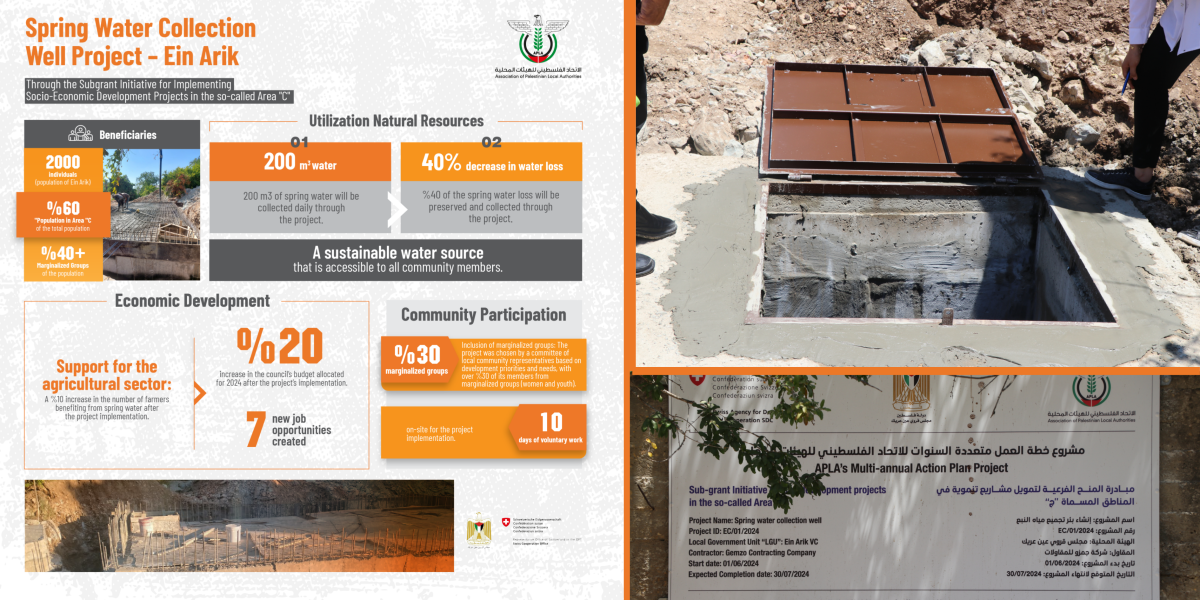Ein Arik | Spring Water Collection Well Project
Standing on the edge of the valley in Ein ‘Arik, one can feel that the water holds the village’s secret. In its surface, the colors of pomegranates and lemons are reflected, and the voices of generations that passed through here still echo, as if the spring preserves memory and releases it anew every morning. Yet, the secret of Ein ‘Arik lies not only in its nature, but in its human fabric as well; a village just six kilometers west of Ramallah, but one that mirrors Palestine in miniature: minarets rising alongside church bells, and a long history of diversity that has become an identity of its own.
Still, this secret remains under threat. Restrictions on urban expansion choke the village, settlements consume its lands, and water—the most precious resource—seeps away and is lost. The paradox of Ein ‘Arik repeats itself daily: a green beauty overflowing with life, confronted by a political reality that tightens the noose.
It is in this context that the “Construction of a Spring Water Collection Well – Ein ‘Arik” project emerged as a step to restore water’s place as a cornerstone of life. The well was designed to collect around 200 cubic meters of water daily from “Al-Ein al-Tahta,” and to stop the bleeding of 40% of lost water, transforming what was wasted into a source of strength that sustains the entire community of 2,000 residents—60% of whom live in areas classified as “C,” deprived of the most basic rights to planning and infrastructure.
The impact was not just numbers in reports, but tangible change in daily life: farmers regained their ability to expand cultivation with a 10% increase in irrigated land; the village council recorded a 20% growth in its 2024 budget, allowing for improved local services; and seven young people from the community found new jobs directly linked to the well and its operation.
The project also reflects a wider vitality woven by community initiatives. With the establishment of a new youth council, young people are now at the heart of local development, driving ideas forward and claiming their place in decision-making.


This project is part of the Sub-Grants Program implemented by the Association of Palestinian Local Authorities (APLA) in the so-called “Area C.” The initiatives born out of this program go far beyond infrastructure upgrades; they are practical tools to anchor people to their land, to expand spaces for life in the face of siege and confiscation, and to turn development into a daily act of resilience—preserving rights, memory, and existence.
Funded by: the European Union and the Swiss Agency for Development and Cooperation (SDC).







 Key Indicators
Key Indicators
 Cultural Heritage
Cultural Heritage
 Public Parks
Public Parks
 Renewable Energy
Renewable Energy
